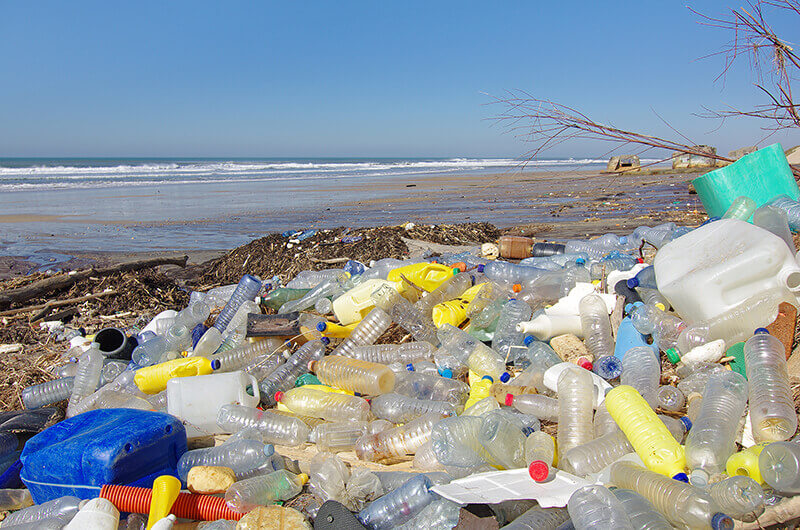Past News
Food science researchers advance science behind gut health and prebiotics
July 8, 2021
When it comes to improving human gut health, approaches and the success of these approaches are based largely on an individual’s gut ecosystem: the bacteria present, its diversity and other factors. Therefore, trying to improve gut health through application of prebiotics or probiotics can have wildly variable results based on gut flora composition.
Food science researchers advance science behind gut health and prebiotics
Why Indiana's Lake Michigan waterfront is seeing its worst erosion in decades
July 1, 2021
Roads collapsing into the water, a stairway and pavilion swept away, dozens of yards of beach submerged: In the last year, erosion has pummeled the Lake Michigan shoreline and the property edging it.
Why Indiana's Lake Michigan waterfront is seeing its worst erosion in decades
Decarbonizing Tourism
June 30, 2021
The challenge of decarbonizing hospitality is one of the great challenges our industry faces. It is important that we consider the actions that will have the greatest impact on our carbon footprint. Unfortunately, the things we talk about most frequently are not the things that have the biggest impact. Here are just a few steps to decarbonizing tourism – the most commonly discussed first, the most impactful last.
Farewell Announcement from Tim Filley
June 29, 2021
A brief message from Center Director Tim Filley
C4E Works with Purdue Polytechnic High School on urban agriculture projects
June 24, 2021
There’s a different type of buzz around Purdue Polytechnic High School Schweitzer Center at Englewood these days. That buzz involves two beehives on top of the school’s building on Indianapolis’ east side, greenhouse projects and hydroponics – all of which are part of the school’s Urban Agriculture Program. The passion project is a partnership between PPHS, Purdue University’s Center for the Environment, its colleges of Agriculture, Health and Human Sciences, Liberal Arts, Science and Purdue Extension.
C4E Works with Purdue Polytechnic High School on urban agriculture projects
C4E Affiliates part of HHS Push for Environmental Justice
June 18, 2021
Researchers in the Purdue University College of Health and Human Sciences (HHS), who are leaders in the Center for the Environment's Chemical Exposure Research Area, are examining human health responses to dangerous chemical and metal exposures in Indiana. Much of their work has already garnered headlines and publications, but more importantly, it has brought attention to at-risk Indiana communities, which could eventually lead to policy changes and a healthier Hoosier state.
Read More about "C4E Affiliates part of HHS Push for Environmental Justice"
Purdue innovation affordably turning plastics into fuel

June 17, 2021
Hasler Ventures LLC plans to scale up to commercial levels a Purdue University patented technology that may accelerate the volume of waste plastic recycling. The innovation is called Low-Pressure Hydrothermal Processing. It promises an economically and environmentally safe way to transform polyolefin plastic, the most common form of plastic, into gasoline, diesel fuel and other high-value items. Developed by Linda Wang, the Maxine Spencer Nichols Professor in the Davidson School of Chemical Engineering, the research was published in a 2021 issue of the peer-reviewed journal Fuel.
Spring 2021 Events Recap
June 15, 2021
Spring 2021 saw the Center for the Environment sponsoring and co-sponsoring several virtual events on topics ranging from the challenges faced by BIPOC farmers and agricultural professionals to issues of science diplomacy between the United States and Latin America.
Unexpected Plants and Animals of Indiana: Peregrine Falcon
June 9, 2021
Indiana has a reputation for speed. The Indianapolis 500, known as “The Greatest Spectacle in Racing,” is recognized as one of the world’s most prestigious sporting events. In 1996, the fastest lap in Indianapolis 500 history was recorded at 236.103 mph. While incredibly fast, it still does not surpass the top speed of peregrine falcons: the world’s fastest animal and a native of Indiana. “Other birds of prey in our state, like hawks, have broad wings and tails that let them soar in circles for long distances before pouncing on prey. Falcons are more streamlined,” explained John “Barny” Dunning, professor of wildlife ecology.
Naming rules tie hands of fungal researchers. Purdue scientist leads call for change
June 1, 2021
In the Dr. Seuss story “Too Many Daves,” a mother runs into trouble when she gives all 23 of her sons the same first name. Confusion ensues when she calls for Dave and all the children come running. In the world of fungus research, the opposite problem has occurred.
Naming rules tie hands of fungal researchers. Purdue scientist leads call for change
